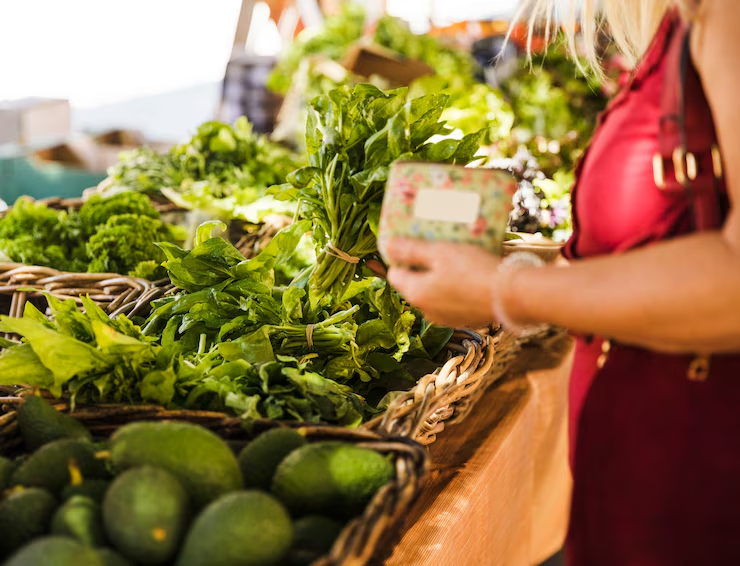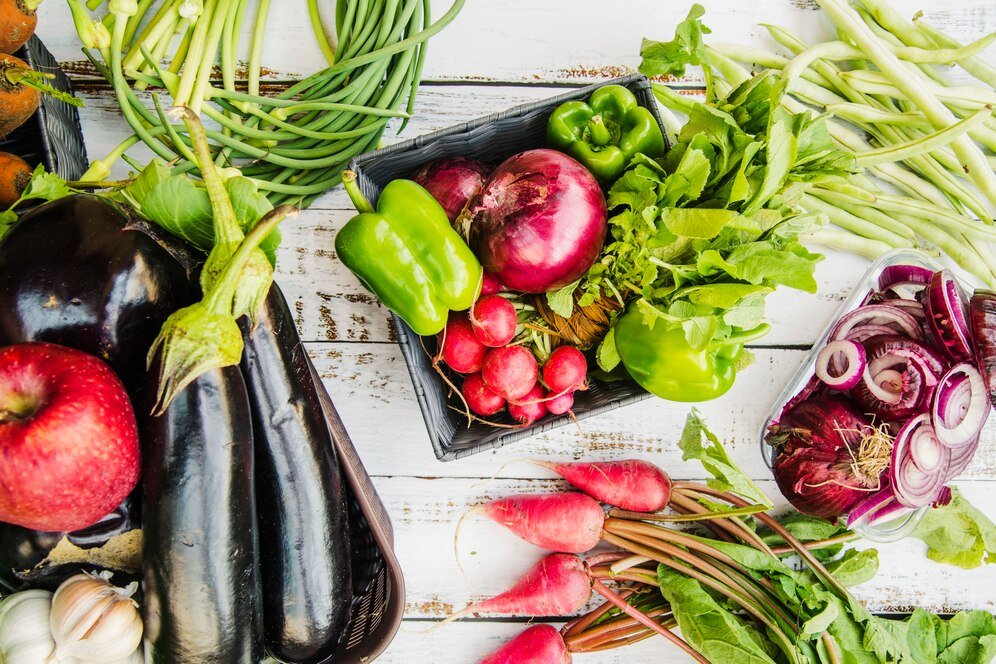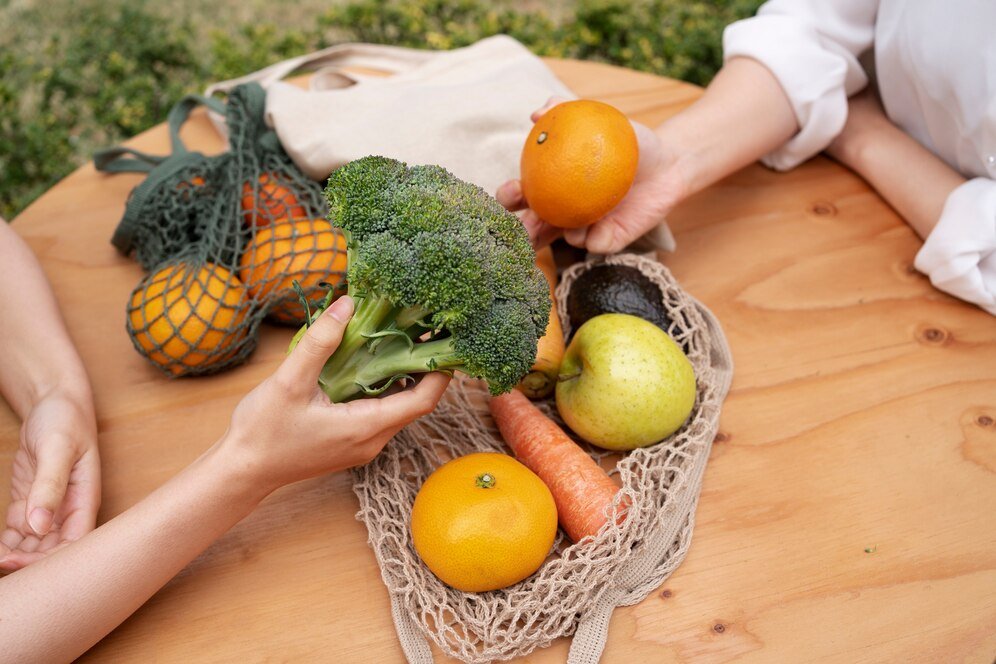Eating seasonal produce is one of the best ways to ensure you’re getting the freshest, most nutrient-dense food available. It’s a practice that not only supports your health but also benefits the environment and local farmers. But what exactly does it mean to eat seasonally, and why should you consider it? Let’s take a closer look at the many benefits of eating with the seasons.
1. Fresher, Tastier Food
When you eat seasonal produce, you’re getting food that’s at the peak of its ripeness and flavor. Fruits and vegetables that are harvested in season typically taste better because they’ve been allowed to ripen naturally on the plant, without the need for artificial ripening processes. They’re also fresher since they don’t have to travel long distances to reach your plate.
Seasonal produce is often harvested just a few days before being sold at local markets, so you’re able to enjoy food that’s as fresh as possible. This leads to a more satisfying eating experience and encourages you to savor each bite of nature’s bounty.
2. More Nutrient-Dense
Fruits and vegetables that are picked at the right time are more nutrient-dense. Produce that’s grown in its natural season tends to have higher levels of vitamins, minerals, and antioxidants compared to out-of-season food that’s been stored for long periods or shipped long distances.
For example, tomatoes, which are typically in season during the summer months, are packed with vitamin C and lycopene, a powerful antioxidant. Eating tomatoes when they’re in season ensures you’re getting the maximum health benefits.
3. Supports Local Farmers and the Economy
Buying seasonal produce from local farmers’ markets is a great way to support your local economy. Farmers who sell seasonal produce are often smaller, family-owned businesses that rely on community support to thrive. When you buy locally grown food, you’re helping to sustain small-scale farms and ensuring that farmers can continue to grow food that’s healthy and environmentally sustainable.
By supporting these farmers, you’re helping to preserve farmland, reduce urban sprawl, and contribute to the vitality of your local community.
4. Reduced Environmental Impact
Eating seasonal produce is better for the planet. When you choose to buy food that’s in season and grown locally, you reduce the environmental impact associated with long-distance transportation. Produce that is shipped from other regions or countries requires a significant amount of energy to transport, often in refrigerated trucks or airplanes, which adds to carbon emissions.
In contrast, seasonal, locally grown produce doesn’t need to travel far, meaning its carbon footprint is much smaller. Additionally, many local farmers use more sustainable farming practices, like crop rotation and natural pest control, which are gentler on the environment.
5. Promotes Biodiversity
Eating seasonally encourages a diverse diet, which is important for your health and the health of the environment. When you eat only a few types of produce year-round, you’re missing out on a wide variety of nutrients and flavors. By embracing seasonal eating, you naturally diversify your diet, incorporating different fruits and vegetables depending on what’s in season.
Furthermore, seasonal eating supports biodiversity on local farms. Farmers often grow a wide range of crops throughout the year, which helps maintain soil health and prevents monocropping, a practice that can deplete the soil and harm ecosystems.
6. Saves You Money
Seasonal produce is often more affordable than out-of-season items. When fruits and vegetables are in peak season, they are more abundant, and farmers can sell them at lower prices due to the increased supply. Buying produce in season is a cost-effective way to fill your cart with fresh, nutritious food without breaking the bank.
In addition, many local farmers’ markets offer discounts towards the end of the day, especially when they have surplus produce they need to sell. This gives you an opportunity to get even more savings on seasonal items.
7. Connects You with Nature’s Rhythms
Eating seasonally helps you reconnect with nature and its natural cycles. Just like plants grow in tune with the seasons, our bodies are also attuned to the rhythms of nature. Eating food that’s in season encourages you to embrace the changes in the weather and the natural environment around you. It’s a simple yet powerful way to feel more connected to the world around you and to honor the bounty that each season offers.
8. It’s Fun and Educational
Finally, eating seasonal produce can be a fun and educational experience. When you start paying attention to what’s in season, you open the door to new foods and flavors you may have never tried before. From fall pumpkins to spring asparagus, each season brings its own unique array of fruits and vegetables to explore.
Seasonal eating also provides an opportunity to get creative in the kitchen. You can experiment with new recipes, try your hand at preserving fruits and vegetables, and discover different ways to enjoy the abundance of each season.
Conclusion: Embrace the Seasons for a Healthier, More Sustainable Lifestyle
Eating seasonal produce is one of the simplest and most rewarding choices you can make for your health, your community, and the planet. By embracing the flavors and benefits that each season offers, you’re not only enhancing your diet but also making a positive impact on the world around you. So, the next time you visit your local farmers’ market, remember: eating with the seasons isn’t just good for you — it’s good for everyone.









